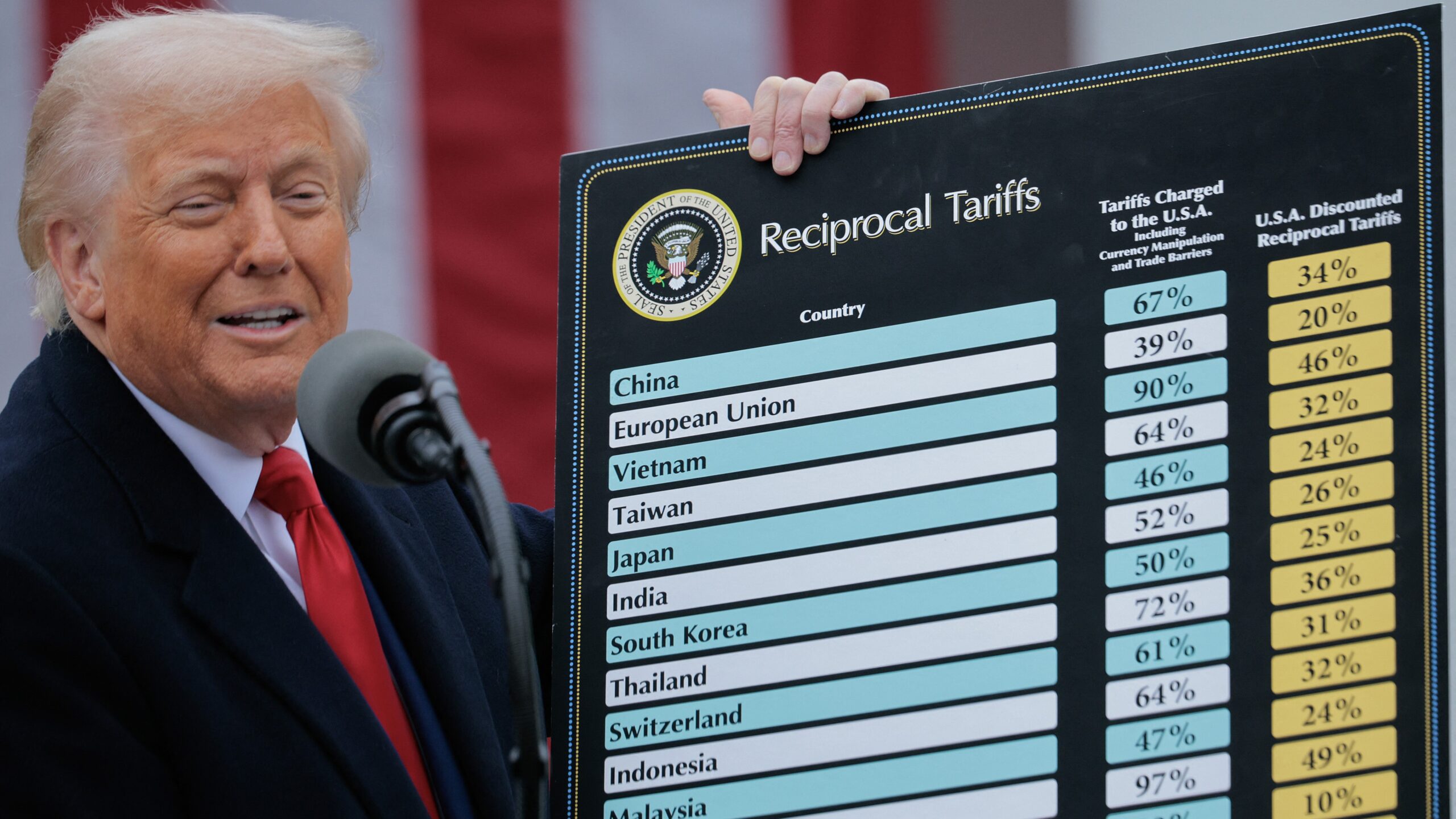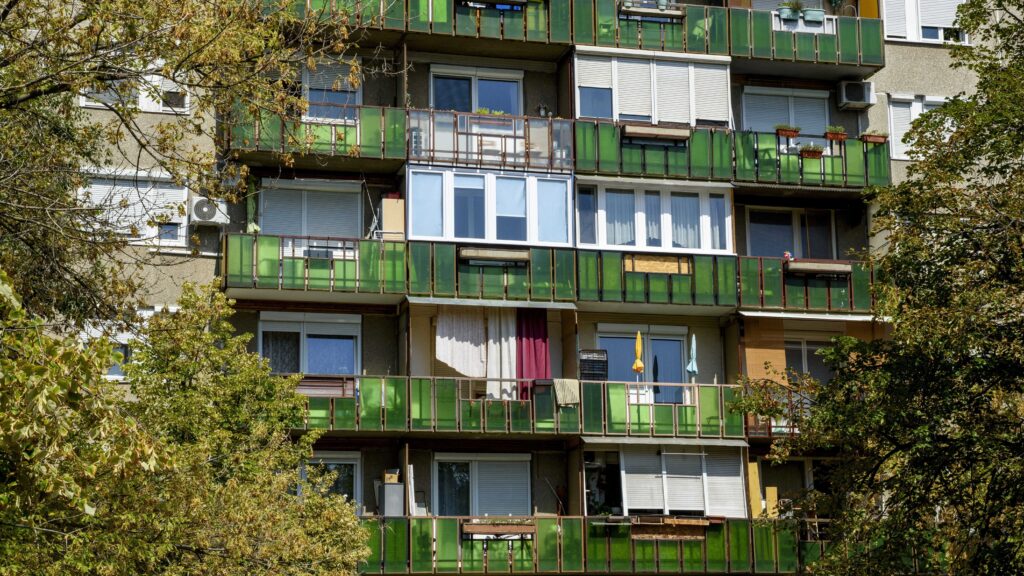In a previous article for The Hungarian Conservative, I made the case that the Trump tariffs posed a serious threat to the Hungarian economy in the run-up to the 2026 election. This will be the case whether or not President Trump continues to enforce the tariffs, as Liberation Day has marked the beginning of the end for the US dollar’s status as the world’s reserve currency. As a result, the forint has already appreciated by around 12 percent against the US dollar since the start of 2025. If a rebalancing of trade with America is achieved by some combination of tariff policy and currency adjustment, this could lead to a decline in Hungarian GDP by between 2.2 per cent and 2.6 per cent. Such a decline would almost certainly trigger a recession, and maybe even before the 2026 election.
The Hungarian government has recently announced a series of measures that should lift the economy by stimulating consumption. The most important amongst these was the extension of the maternal income tax exemption to mothers of two or more children, and to mothers under the age of 30 with one child. Another important lift that the government gave to domestic consumption was the policy to support small villages and towns which aims to support local pubs and community centres. These policies should help to offset the Trump tariff shock somewhat, but they will not be enough.
What is needed is a direct government stimulus programme that should be announced as soon as possible and should be put into effect by the end of the summer at the very latest. This stimulus programme must not target consumption in the Hungarian economy, but rather investment. Investment stimulus works its way through the economy much more effectively than consumption stimulus. Investment stimulus drives job creation, which in turn generates income for workers; this income then fuels further consumer spending. The aim of this programme is to give the Hungarian economy a sharp boost at the same time as the Trump tariff shock hits the economy, thereby hopefully keeping the economy from tipping into a recessionary downward spiral.
‘Investment stimulus drives job creation, which in turn generates income for workers; this income then fuels further consumer spending’
But we also want a stimulus that aligns with the broader goals of the Fidesz party, as reflected in the measures they have already implemented to boost investment. What is needed is an investment-led stimulus that promotes Hungarian families, raises the birth rate, and aims at improving the living standards, especially in towns and villages. To achieve all these objectives at once—and, at the same time, to provide the economic boost needed to prevent a recession—, we advocate for an innovative new policy called the ‘Family Housing Lottery Stimulus’.
The Family Housing Lottery Stimulus is a homebuilding programme that aims to provide families with discounted homes. To do this, the government will approach homebuilders in the private sector and give them mandates to build homes across Hungary. These homes will be allocated to each city, town and village in Hungary based on the number of births in that area. Private homebuilders will be told to build the housing on the condition that the government will subsidise 37.5 per cent of the end price of purchase. This subsidy will ensure a guaranteed market for the new homes, as people will rush to buy these massively discounted houses.
The Family Housing Lottery Subsidy should have somewhere between 1 per cent and 1.5 per cent of GDP allocated to it and should aim to complete all construction within 12 months of starting. This allocation will come through a combination of direct government subsidy and central bank loan subsidy. The average home built by the programme should aim to be around €100,000 (around 40 million forints), which is roughly the price of the average home. Of course, the cost will vary by region, but on average this should be the money spent on each home by the programme. With a 37.5 per cent subsidy in place this should ensure that between 50,000 and 75,000 new homes are built, depending on how much money is allocated to the programme. This spending should raise Hungarian GDP growth by at least 1.2 per cent and 1.8 per cent, which should insulate the Hungarian economy from the Trump tariff shock.
The way that this programme works to raise the birth rate is by apportioning the housing to married couples that are expecting children. The rules of the programme are simple. A woman must be married and be at least 4.5 months pregnant—past 4 months miscarriages are extremely rare, and abortion at that time is illegal in Hungary. The married couple can then apply to the programme, and they will have their name put into a lottery system. If the name is drawn at random, they will win a subsidized home.
The homes will be distributed over the course of 24 months. This will mean that a married couple expecting a child will have a very high probability of winning a subsidized home. Consider that in 2023 there were around 85,000 births in Hungary. Imagine that, because of the programme, married couples would decide to have more children, and this number rose to 110,000. Depending on the size of the programme, there would be between 25,000 and 37,500 subsidized homes to distribute every year. This would mean that the probability of winning a subsidized home for a married couple would be between 23 per cent and 29 per cent. These are very good odds, and it is likely that every young couple would know someone who won a subsidized home through the programme.
‘The Family Housing Lottery Subsidy “gamifies” family policy and in this way makes the process far more engaging’
The government should not communicate the programme as being once-off, but rather experimental. Young couples should realize that another one of these programmes may come online in the future. This will encourage them to get married and to start to think about having children earlier than perhaps they may have intended to. The Family Housing Lottery Subsidy ‘gamifies’ family policy and in this way makes the process far more engaging. There is no doubt that direct subsidies to family formation create strong incentives for behaviour, but research shows that gamified processes—especially ones based on games of chance—have extremely powerful impacts on behaviour.
Experimenting with this programme in the run-up to the election would also be enormously powerful politically for Fidesz. It would capture the public imagination, and people would become excited at the prospect of being able to enter a lottery system to purchase a home that otherwise they would not have been able to afford. The programme would also act as a stimulus which would provide a lift to the jobs market, distributing well-paid jobs across the country. When a private homebuilder is part of the programme, they will be mandated to advertise this to their employees who will understand that the ruling party is providing them with solid employment opportunities. This will be especially attractive if the economic outlook dims in Europe as the Trump tariff shock hits. Finally, the programme will attract the attention of the rest of the world. Hungary is already famous around the world for its innovative family policies, but the Family Housing Lottery Stimulus would be something completely new, and social scientists all over the world would be keen to study its impact.
Related articles:







